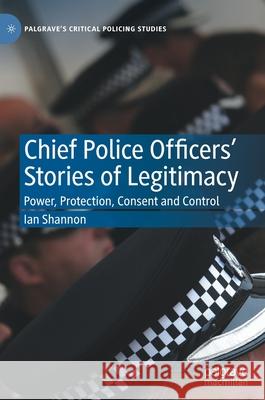Chief Police Officers' Stories of Legitimacy: Power, Protection, Consent and Control » książka
topmenu
Chief Police Officers' Stories of Legitimacy: Power, Protection, Consent and Control
ISBN-13: 9783030858780 / Angielski / Twarda / 2021 / 266 str.
Chief Police Officers' Stories of Legitimacy: Power, Protection, Consent and Control
ISBN-13: 9783030858780 / Angielski / Twarda / 2021 / 266 str.
cena 221,37
(netto: 210,83 VAT: 5%)
Najniższa cena z 30 dni: 212,02
(netto: 210,83 VAT: 5%)
Najniższa cena z 30 dni: 212,02
Termin realizacji zamówienia:
ok. 16-18 dni roboczych.
ok. 16-18 dni roboczych.
Darmowa dostawa!
Kategorie:
Kategorie BISAC:
Wydawca:
Palgrave MacMillan
Seria wydawnicza:
Język:
Angielski
ISBN-13:
9783030858780
Rok wydania:
2021
Wydanie:
2022
Numer serii:
001109162
Ilość stron:
266
Waga:
0.50 kg
Wymiary:
21.01 x 14.81 x 1.91
Oprawa:
Twarda
Wolumenów:
01
Dodatkowe informacje:
Wydanie ilustrowane











